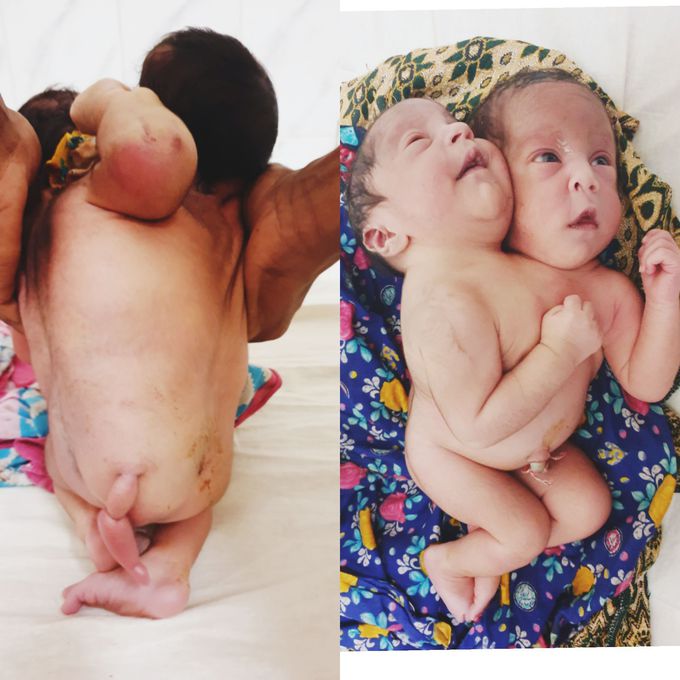


Dicephalic Parapagus Twins
Conjoined twinning is a rare event occurring in only 1/50000-1/100000 pregnancies. Of these, less than 0.5% of the cases are dicephalus parapagus twins, which is, therefore, a very rare occurrence. ‘Dicephalus’ is one among the various subsets of parapagus. Here the twins have two heads, sharing a common body from the neck or upper chest downwards, with a pair of lower limbs and a single set of reproductive organs. Conjoined twinning is explained by two proposed theories. First is the fission theory which postulates that incomplete fission may be seen in a single embryonic disc, 13 to 15 days after the fertilisation of the ovum. The second theory is the fusion theory which postulates that two separate monovular embryonic discs could secondarily fuse leading to this developmental anomaly. Parapagus twins are fused ventrolaterally and lie side by side. These twins are most frequently conjoined at the chest. However, respiratory, gastrointestinal and genito-urinary tracts are separate with fused liver and diaphragm. Two spinal cords, two vertebral columns, two legs and a variable number of upper limbs are present. Complex anomalies of the heart have been described in previous studies which comprise of the defects of lateralisation, ventricular cardiac union and a common pericardium. Conjoined twins can be detected as early as 12 weeks of gestation on ultrasonography. Conjoined twinning should be kept in mind when monozygotic twins are encountered. Both twins in face-to-face position or in breech with polyhydramnios should raise the suspicion of conjoined twinning. Allowing the twins to remain conjoined is not possible because of a large degree of shared organs which prevents survival. If the surgery is not an emergency, it is recommended to delay it until late infancy to allow detailed preoperative assessment.
Curious to know how the very grave, ethical decision regarding treatment, if that is at all possible, would be made. How do you determine which "twin" (read head) to remove? What a curious, terrible story to have to tell the child if it asks about the scars on it's shoulder.
Indeed it is! Probably the surgery would never happen! Knowing the economic situation of the family. And its quite a challenge in third world countries to operate this kind of case.

